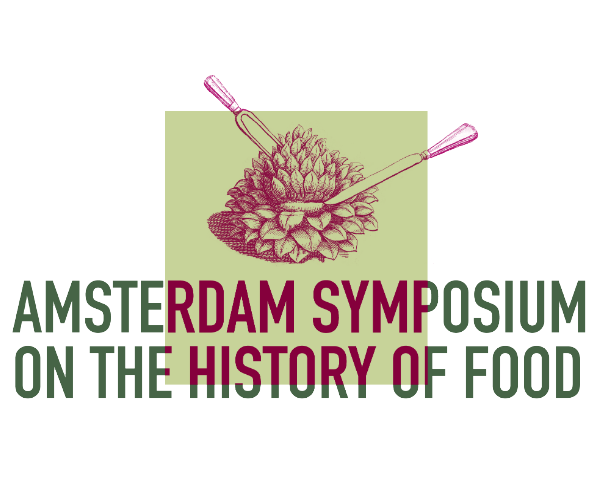Call for papers Amsterdam Symposium on the History of Food 2022
Food and the Environment: The Dynamic Relationship Between Food Practices and Nature
11-12 februari 2022, Amsterdam (and online)
Ever since hunters and gatherers made the switch to sedentary forms of farming some 13,000 years ago, the way people produce and consume food has profoundly shaped the world in which we live. Although the idea of the ‘environment’ – which we now use to describe the scale and scope of this human impact on the planet – is a relatively modern concept, historians, archaeologists and ecologists have carefully traced the continual interconnectedness of food and the environment. Indeed, changes in dietary patterns have been intrinsically linked to climate change and demographics throughout history, and the question of how to feed a growing population has been at the centre of major developments in food production innovations from the Neolithic Revolution onwards.
The concern about the limits of food production and consumption has similar long historical roots. Agricultural innovations and colonial explorations, which allowed humans to grow and eat more and more diverse foodstuffs, also prompted worries about the adverse consequences of rapid population growth and environmental degradation. From Thomas Malthus’ 1798 An Essay on the Principle of Population to the warnings of post-WWII scholars such as William Vogt and Paul Ehrlich – the concern that food production could and can never keep pace with population increase has been central to many heated scholarly debates. Although the 1960-1980s Green Revolution has thus far managed to avert a ‘Malthusian disaster’, worries about the intensive use of nature’s resources coupled with booming population growth continue to persist. At the same time, more people have become aware of the dynamic, two-way relationship between humans and their environment, and of the fact that natural conditions have always shaped and endangered human life. This year’s Amsterdam Symposium on the History of Food traces this far-reaching transformative impact of food production and consumption practices on the environment – and vice versa – both in history and today.
Topics
The Symposium encourages scholars from all relevant fields of research to explore the continuing relevance of the interconnectedness of food history and environmental history. We invite abstracts for papers covering any topic related to the study of this theme including, but not limited to, the following:
- The history of environmental beliefs and movements
- The relationship between climate change and food production and consumption practices
- The impact of exploitation colonialism on the environment
- Adverse consequences of intensive food production (e.g. resource exhaustion, loss of biodiversity, soil degradation, pollution)
- Sustainable food systems in history
- The interdependence of landscapes and cuisines
- Technological innovations that have increased agricultural growth and contributed to achieving food security
- The historiography of environmental history, and the history of the idea of the ‘environment’
Guidelines Paper Proposals
The symposium program consists of a keynote lecture, paper presentations and panel discussions. You can join us in Amsterdam or participate online. If you are interested in presenting a paper at the symposium, please submit an abstract before 2 June 2021. Please expect to be presenting to an audience of up to 200 people, including academic as well as professional participants. An online presentation is also possible. The symposium language is English. Presenters of accepted papers are asked to speak 20 minutes as lively and engaging as possible, followed by a discussion with the panel and the audience under the supervision of a session chair.
Applications should include:
- Title of proposed paper
- Abstract (maximum 500 words)
- Biographical information (short CV)
- Contact information (e-mail, telephone and postal address)
Applications should be sent by the deadline of 2 June 2021 to: Foodhistory-ub@uva.nl
Notification of acceptance:
As it may not be possible to include everyone’s submission, the organizing committee and advisory board will make a selection. You will be notified if the paper is accepted by 2 July 2021.
More information: Amsterdam Symposium on the History of Food 2022 – Allard Pierson




